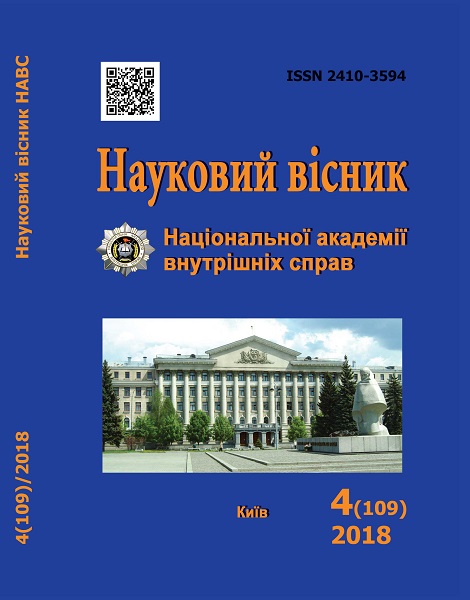Efficiency of Criminal Prosecuting of Money Laundering in Ukraine
Abstract
The article deals with the problems of spread of complicated socio-economic phenomenon – money laundering in Ukraine. This problem is relevant because of this phenomenonʼs place among other socio-economic phenomena: shadow economy, capital outflow, criminalization of economic relations, etc. Attention is focused on ineffectiveness of the national anti-money laundering mechanism, in particular, on active detection of money laundering, confiscation of criminal assets and criminal prosecution of criminals. It is indicated on the necessity of monitoring and conducting of the corresponding research. On the basis of unique empirical materials, results of questionnaire of specialists in the anti-money laundering law enforcement system, strategic analysis of distribution of this phenomenon were carried out. The factors that form the basis of effectiveness of money laundering prosecution are highlighted.
On the basis of their evaluation, conclusions were drawn regarding the priority and directions for improving the law enforcement agenciesʼ activity in the area of anti-money laundering. The methodological principles of the FATF for assessing the effectiveness of national anti-money laundering system are analyzed. Attention is focused on evaluation results of the effectiveness of anti-money laundering system based on the results of the recently completed round of evaluation of Ukraine MONEYWAL. The research component is based on the comparison of statistical data, the surveyʼs results of experts and the fixing of strategic goals of the state policy in the given sphere within the relevant time frame.
Downloads
Abstract views: 97 PDF Downloads: 53
- Authors reserve the right to authorship of their own work and transfer to the magazine the right of the first publication of this work under the terms of the Creative Commons Attribution License, which allows other persons to freely distribute published work with mandatory reference to authors of the original work and the first publication of an article in this magazine.
- Authors have the right to enter into separate additional agreements on non-exclusive dissemination of the work in the form in which it was published in the journal (for example, to post an article in the institution's repository or to publish as part of a monograph), provided that the link to the first publication of the work in this journal is maintained.
- The journal's policy allows and encourages the posting of articles by authors on the Internet (for example, in electronic storehouses of institutions or on personal websites), both before the submission of this manuscript to the editorial office and during its editorial processing, as this contributes to the creation of a productive scientific discussion and positively affects the efficiency and dynamics of citing the published work.




